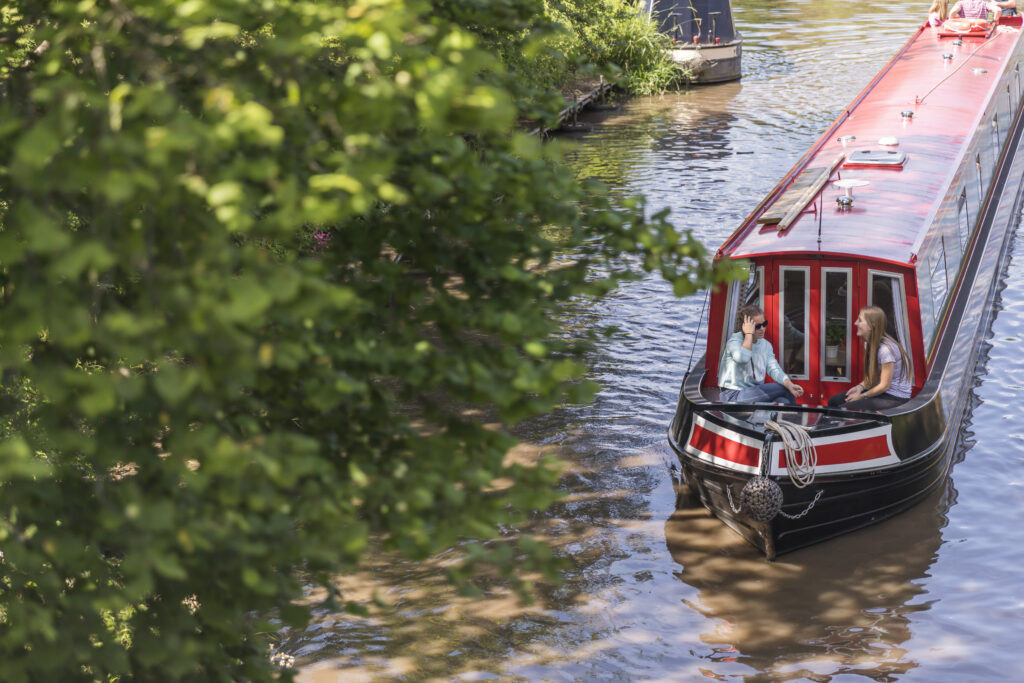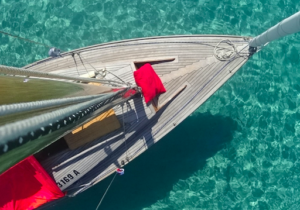British waterways ‘falling into disrepair’

Britain’s network of canals and navigable rivers is deteriorating because of inadequate funding, says a coalition of organisations campaigning for urgent government action.
Fund Britain’s Waterways (FBW), a coalition of organisations representing hundreds of thousands of users and supporters of inland waterways, is campaigning for national and local government to act now and protect the public benefit and natural capital of Britain’s waterways. The campaign argues that, at a time of unprecedented challenges caused by the climate emergency and high inflation, the government is failing to respond.
Management of Britain’s 5,000 miles of navigable inland waterways is fragmented. The Canal & River Trust (CRT) has the greatest responsibility, covering 2,000 miles. It is already in a difficult financial situation with a fixed government grant of £52.6m per year until 2027. Defra was expected to confirm funding for 2028 onwards in July 2022 but has not yet made an announcement.
Other waterways face similar problems: the Environment Agency is operating with £22m per year, one-third of its identified requirement, and Scottish Canals has over £70m of maintenance work outstanding.
The consequences of failing to maintain waterway infrastructure were clearly shown by the evacuation of 1,500 local residents in case the dam at Toddbrook Reservoir collapsed in 2019. FBW says this event has shown the need for increased spend on CRT reservoirs of up to £25m per year.
The Covid-19 pandemic demonstrated the value of Britain’s inland waterways as people sought blue and green spaces to help recover — this was acknowledged in Defra’s own Environmental Improvement Plan.
The combined annual economic and social value of CRT waterways alone has been quantified as £6.1bn, according to Fund Britain’s Waterways, including cost savings of £1.1bn for the NHS from active use of the waterways and towpaths.
Despite this greater understanding of their value, and the deteriorating state of the infrastructure today, the government appears intent on significantly reducing its funding for the waterways, says Les Etheridge, chair of the FBW steering group and national chair of the Inland Waterways Association (IWA).
IWA recently launched its own campaign to ‘Protect Our Waterways’ in response to funding cuts.
“Government needs to recognise that saying they value the inland waterways is not enough to prevent their decline,” says Etheridge. “Whilst we in Fund Britain’s Waterways understand the financial pressures that everyone faces, the financial cuts are too deep, and adequate public funding needs to be allocated to maintain these national assets.”
FBW will be taking action starting with a campaign cruise in Birmingham over the weekend of 12-13 August 2023.












Not exactly news.
As a boater, with a mooring in an EA owned ‘Harbour’, I couldn’t be more aware of the inadequacy of funding.
However there are also miss-management issues creating unnecessary spending in preference to essential works.
Much of the reason for these situations are the method of allocating government financing.
On top of that, there doesn’t seem to be any joined up planning or user consultation. There is a general need for ‘Project Engineer/Manager’ to plan properly.
As a boater and business owner relying on the River Severn I know the staff on the ground do the best they can under very difficult circumstances. the funding is totally inadequate for all the maintenance work and dredging that needs doing. Our licences keep going up but the access and facilities offered to us get less and less. We now only have reasonable access between May and September and never in the evening. Winter is now a virtual shut down regardless of weather conditions. This year due to a lack of staff and volunteers even the summer months have seen reduced lock openings causing much anger amongst the boating community. Many are now leaving for the coastal marinas where licences are not required and only tides affect their enjoyment. I seriously wonder if the top brass in London would expect to use volunteer secretaries?
The rivers and inland waterways in the UK are one of our greatest assets that should be being promoted as such. Capital investment in general but especially in automation should be a major priority. Although a large investment in the short term is costly it would be returned in the long term in many ways. This must be provided urgently for the benefit of humanity, wild life and the economy.